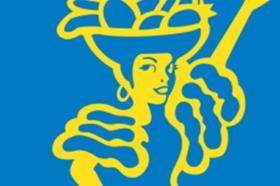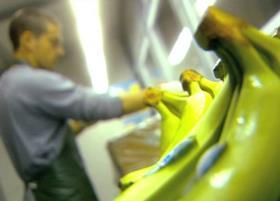

Bananas consistently outperform other fruits and vegetables on the European market when it comes to consumption according to data from Freshfel.
In a presentation on new actors, consumption and distribution trends, challenges and future prospects in the European Union made at this week’s International Banana Congress in Miami, Freshfel’s Raquel Izquierdo said the downward trend in European consumption meant per capita consumption had fallen by 80g in the past 10 years, the equivalent of one piece of fruit or vegetables per capita per day.
Citizens of most member states are now eating below the minimum recommended amount of 400g per day stipulated by the World Health Organisation.
Bananas are bucking the trend, however, with consumption rising 15 per cent since 2004. Izquierdo said a number of factors were likely to be behind the rise, including the increased liberalisation of the market, the relative cheapness of bananas compared to other fruits and the fact that they are available year-round.
She also noted that greater segmentation of the market through the introduction of Fairtrade, organic, baby bananas and red bananas and other lines, coupled with strong branding, had also helped to strengthen demand, while the fact that bananas are an ideal snacking product meant they fitted into the growing trend for convenience products.
Izquierdo pointed out that with consumption habits changing so rapidly, it was difficult to predict future trends within the industry.
On the plus side, the rise of vegetarianism and veganism coupled with the inherent health benefits and low environmental impact of fruits and vegetables compared with other fresh products such as meat and dairy are positive signs for producers, she said. However, the growing trend towards local and seasonal products could present a challenge for the banana industry in the future.
In terms of distribution, new supply channels such as online selling, fruit basket schemes and meal delivery services like Hello Fresh! will create new opportunities for produce marketers. At the same time they face growing competition from new sources, in particular the nutraceuticals sector.
Izquierdo also noted that social media has been a great leveller when it came to marketing as it is has never been easier to target consumers effectively, meaning success no longer depended on having a huge marketing budget.
EU banana imports have grown by 28 per cent in volume since 2006, the year in which the import regime changed. During that time, the value of imports has increased by 30 per cent. The move towards a tariff-only regime was expected to lead to a surge in imports of dollar bananas at the cost of the Most Favoured Nations and ACP countries, but in fact volumes from both these groups have grown in the ensuing years.
Izquierdo said trade policy was likely to continue exerting an influence the market in the foreseeable future, with Ecuador expected to sign a free trade agreement with the EU this year and Mexico also set to reopen negotiations on its trade deal with Europe in the coming months.



